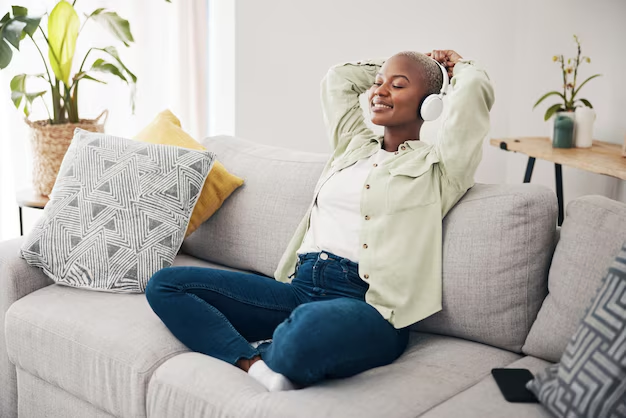Strategies for Falling Asleep When Anxiety Hits
Struggling to fall asleep due to anxiety can feel like an exhausting cycle. As your head hits the pillow, racing thoughts seem to spring to life. If this sounds familiar, you're not alone. Sleep disturbances are a common challenge for those experiencing anxiety. Understanding how to manage this can make a huge difference in your quality of life. Let's explore effective strategies to help you slip into restful, anxiety-free sleep.
The Connection Between Anxiety and Sleep
Understanding how anxiety impacts sleep is the first step to overcoming it. Anxiety triggers the body's stress response, leading to increased heart rate, rapid breathing, and a flood of adrenaline—all of which can make it difficult to relax enough to fall asleep. The good news? There are methods to calm these effects and support better sleep.
How Your Nervous System Works
Your nervous system is divided into two main parts: the sympathetic nervous system, which activates your "fight-or-flight" response, and the parasympathetic nervous system, which helps you "rest and digest." Anxiety often ramps up the sympathetic nervous system, making it hard to switch gears into a restful state.
The Impact of Sleep Loss on Anxiety
Lack of sleep can exacerbate anxiety symptoms, creating a vicious cycle. Insufficient rest can affect mood regulation and increase stress, leading to heightened levels of anxiety during the day. By improving sleep patterns, you not only enhance overall well-being but also aid in reducing anxiety.
Practical Tips for Falling Asleep with Anxiety
Create a Calm Environment 🌿
1.Optimize Your Sleep Space: Keep your bedroom cool, quiet, and comfortable. Use blackout curtains to block light and ensure your mattress and pillows support your sleeping posture.
2.Remove Electronic Distractions: Switch off electronic devices at least an hour before bed to limit exposure to blue light, which can interfere with melatonin production—a hormone crucial for sleep.
Develop a Pre-Sleep Routine 🌙
1.Wind Down Before Bed: Spend 30-60 minutes before sleep doing calming activities like reading or listening to soothing music.
2.Practice Relaxation Techniques: Engage in relaxation exercises such as deep breathing, progressive muscle relaxation, or guided meditation. Apps focusing on mindfulness can be valuable resources.
Manage Stress Daily 🧘♀️
1.Incorporate Physical Activity: Regular exercise can significantly reduce anxiety levels. Aim for at least 30 minutes of moderate activity most days, but avoid vigorous workouts close to bedtime.
2.Mindfulness Practices: Engage in activities that promote mindfulness, such as yoga or tai chi. These practices help center your thoughts, shifting focus away from anxiety.
Tweak Your Evening Habits 🔄
1.Limit Caffeine and Alcohol: Consuming these in the evening can interfere with the ability to fall asleep. Opt for herbal teas or water instead.
2.Avoid Heavy Meals Before Bed: Eating large meals can cause discomfort and disrupt sleep. Aim to have your last meal at least 2-3 hours before bedtime.
Leverage Cognitive Techniques 🧠
1.Challenge Negative Thoughts: Practicing cognitive restructuring can help combat anxiety-driven thoughts. During the day, identify and challenge negative thoughts that typically arise at night.
2.Keep a Worry Journal: Write down concerns earlier in the day rather than before sleep. This can help clear your mind and make it easier to relax once in bed.
Understanding the Role of Sleep Hygiene
Consistency is Key
Maintaining a regular sleep schedule, even on weekends, aids in regulating your body's internal clock. Go to bed and wake up at the same time every day to facilitate a natural sleep-wake cycle.
Importance of Morning Light
Daylight exposure helps your body maintain a natural circadian rhythm. Spend time outside in the morning if possible, or consider a sunrise alarm clock that simulates natural daylight.
When to Seek Professional Help
If you consistently struggle with anxiety and sleep despite trying these strategies, consulting a healthcare provider can be beneficial. They can offer additional tools and support.
Therapy Options 🗨️
Cognitive-behavioral therapy (CBT) is particularly effective for treating insomnia and anxiety. A therapist can guide you in managing anxiety symptoms, improving sleep quality through targeted approaches.
Medication Considerations 💊
While medication might be necessary for some, it should be discussed thoroughly with a professional who can outline the benefits and risks based on your specific needs.
Finding Your Personal Sleep Solution
The journey to restful sleep can be deeply personal, requiring some experimentation to discover what works best for you. Implementing small changes can gradually lead to significant improvements in both sleep and anxiety levels.
Holistic Lifestyle Changes 🌼
Adopting a broader approach that incorporates dietary considerations, stress management techniques, and mental health support can enhance results. Combining various strategies promotes lasting sleep improvements and overall wellness.
Key Takeaways for Better Sleep
Embarking on this path requires patience and persistence, but the potential for improved sleep and reduced anxiety is worth the effort. Remember, it's about creating a sleep environment and lifestyle conducive to relaxation and peace.
Summary
- 🌿 Create a calming sleep environment
- 🌙 Develop a consistent pre-sleep routine
- 🧘♀️ Manage daily stress with exercise and mindfulness
- 🔄 Adjust evening habits, like reducing caffeine and heavy meals
- 🧠 Use cognitive techniques to manage anxiety and negative thoughts
- 🗨️ Seek professional advice if persistent issues arise
Sleeping well despite anxiety can transform your nights and days. By adopting these strategies, you can work towards sleep that refreshes both body and mind.

